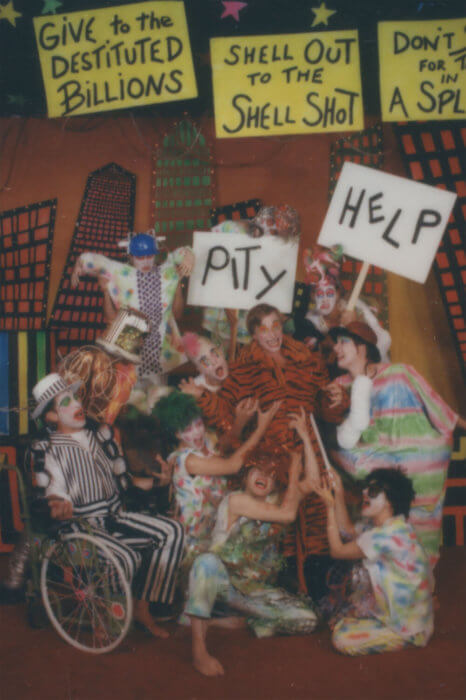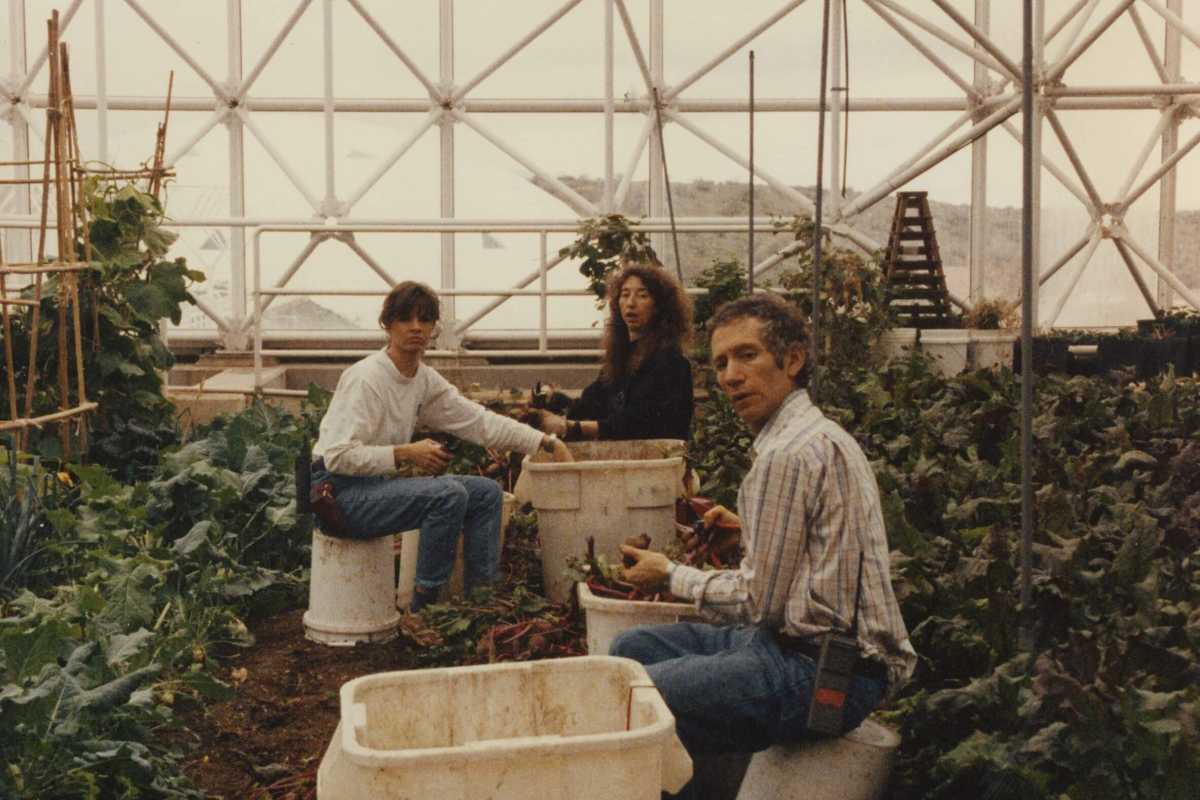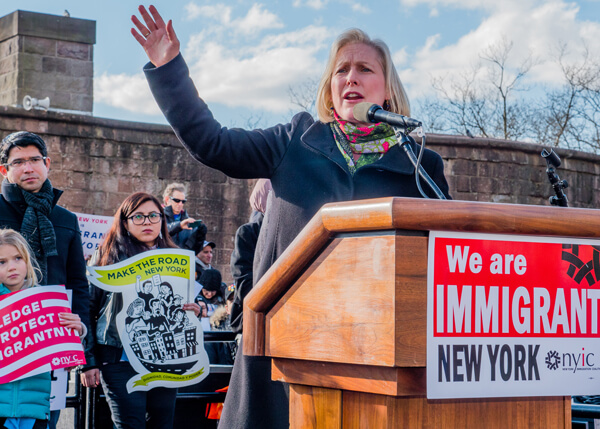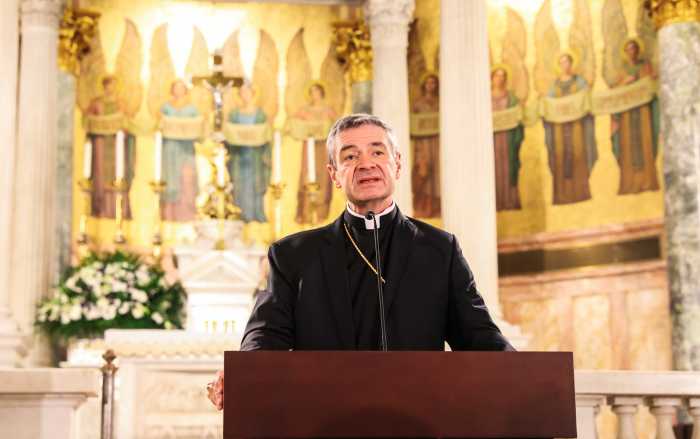“Spaceship Earth” traces a voyage from hope to disenchantment. The long path toward Biosphere 2, an attempt to build a self-sustaining real-life Noah’s Ark, began in the counterculture of late ‘60s San Francisco. Kathelin Gray was inspired by French surrealist Rene Daumal’s novel “Mount Analogue.” Upon meeting John Allen, the two formed concrete plans to try and change the world in a positive direction. This was hardly unusual amidst the upheaval of the time, but they weren’t satisfied by forming a troupe called the Theater of All Possibilities. Disillusioned by the hippie scene’s flakiness and growing commercialism, they moved to New Mexico in 1969 to found Synergia Ranch.
But as the two became more ambitious, they returned to the Bay Area in the mid ‘70s to live out their wildest plans, inspired by the movie “Silent Running” and architect Buckminster Fuller’s eco-utopian non-fiction. In 1991, they were able to get funding to mount Biosphere 2. The wonder isn’t that they failed in the end. It’s that they were able to get their “spaceship” running and keep it going in the Arizona desert. Out gay director Matt Wolf takes the resulting unhappy ending for granted and searches instead for the project’s merits.
Matt Wolf acknowledges the promise, charts the demise of Biosphere 2
Wolf has worked with a wide number of themes, including last year’s “Recorder: The Marion Stokes Project.” That film showed off the results of a woman’s quixotic attempts at media criticism and documentation, as she obsessively taped several channels of TV news every day for decades. In retrospect, the footage had great historical value. Wolf’s film uses it to analyze the propagandistic aspects of American coverage of the Iranian hostage crisis. But Stokes began as an activist within the Communist Party, then co-hosted a public access cable TV show with her husband in the ‘70s. Her taping habit was both a retreat from the world and an engagement with it.

The exact same thing rings true for the concept of Biosphere 2. Its biblical undertones are hard to miss. One of Wolf’s interview subjects likens it to the Garden of Eden; he immediately cuts to a shot of a snake. But it was open for public view, attempting to fund itself as a tourist attraction. It also promoted itself through the media. The film incorporates outtakes of a news show where Rue McClanahan reported on Biosphere 2. Indeed, the many TV news clips in “Spaceship Earth” could’ve come from “Recorder.” Like Stokes, the denizens of Synergia Ranch were addicted to video, thoroughly documenting both their daily lives and their depiction in the media. “Spaceship Earth” is able to draw on this footage for an inside perspective on their experience.
Given the amount of money that Biosphere 2 required, its participants had to team up with billionaire Ed Bass for financing. They may have founded a commune, but they recognized the compromises they had to make with capitalism to make their vision possible. The opening scene of “Spaceship Earth” calls up images of goofy — and frequently dangerous — cults steeped in sci-fi imagery, with the biospherians dressed in quasi-“Star Trek” imagery. But Wolf is careful to point out the flaws of the experiment without condemning it. It led to serious health risks: one member chopped off the tip of her finger in a meat grinder, and the crew eventually got poisoned by carbon dioxide as the greenhouse effect took over inside. But Steve Bannon’s involvement proved even more toxic.
Wolf’s sparing but well-placed choice of rock music, including Thunderclap Newman’s “Something in the Air,” Talking Heads’ “This Must Be the Place,” and Jesus Jones’ “Right Here, Right Now” carries us through the decades’ changes. “This Must Be the Place” is used as a celebration of Biosphere 2 as a home and the affection its residents had for each other. “Right Here, Right Now” is a banal song whose optimism that the end of communism equaled “watching the world wake up from history” has dated badly, but that upbeat spirit makes it perfectly suited for a montage showing the effects of oxygen on the crew. Gay composer Owen Pallett contributed an orchestral score.

Wolf says that he made the film because he was certain that writing off Biosphere 2 as a failure was simplistic and wrong. The eco-pessimism of some members of its team has been proven true, but they responded by creating a world where sustainability wasn’t merely a slogan. Grand, ambitious visions tend to fall short of their widest hopes, but the surviving members of Biosphere 2 are still convinced of the importance, indeed urgency, of what they did. Rather than dismissing such hopes as a dream best left to fade away alongside patchouli incense and tie-dye T-shirts, “Spaceship Earth” wonders what we can learn from both the accomplishments and flaws of Biosphere 2.
SPACESHIP EARTH | Directed by Matt Wolf | Neon | Begins streaming on Hulu and Video on Demand May 8 | spaceshipearthmovie.com
To sign up for the Gay City News email newsletter, visit gaycitynews.com/newsletter.


































